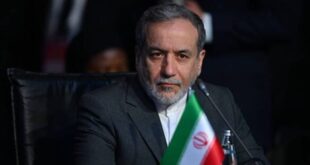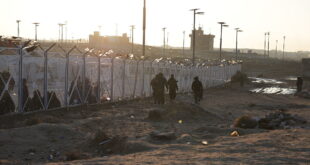Turkish Foreign Minister Abdullah Gul hinted strongly Wednesday that he could run for president again after his ruling Justice and Development Party’s (AKP) victory in snap general elections.Gul’s botched bid to become president in April had sparked the political crisis that forced the government to call the early ballot on Sunday.
Asked whether he would run again when the new parliament meets next month for a fresh presidential vote, he told reporters that his decision was “very clearâ€, but declined to elaborate.
“I cannot be expected to ignore the will of the people… the signs given at the rallies,†he said, referring to supporters who cheered him as a future president at election campaign rallies.
But he stressed that “there is no need to rush things,†saying the process must continue “with great political maturity in the direction indicated by the results†of the election.
“We have a period of evaluation ahead of us… I believe the other parties in parliament will carefully consider the nearly 50 per cent of the vote that we obtained,†he said.
The main opposition Republican People’s Party (CHP), a key player in the April crisis, quickly responded that Gul’s Islamist past remained an insurmountable obstacle to his election as head of state.
“We will not support a person who comes from [a radical Islamist] tradition and who has not embraced Ataturk’s principles,†said CHP deputy chairman Mustafa Ozyurek, referring to Mustafa Kemal Ataturk, the founder of modern secularist Turkey.
If Gul is again put up as a candidate, Ozyurek said his party would again boycott the presidential vote.
Prime Minister Recep Tayyip Erdogan has said he will seek a compromise with other parties on the presidential choice this time, while insisting that the candidate would have to come from his AKP.
The third party that entered parliament, the Nationalist Action Party, as well as 28 independents, have not yet said whether they will support Gul.
In Sunday’s elections, the Islamist-rooted AKP, which the opposition accuses of seeking to undermine this Muslim-majority country’s secular order, was reelected with 46.4 per cent of the vote.
The AKP brought the elections forward from November after the opposition boycotted two parliamentary votes on Gul’s candidacy in April and May.
The crisis worsened as the army warned the government it was ready to step in to protect the secular system and millions of Turks held unprecedented demonstrations against the prospect of an AKP president.
Opponents charge that with Gul in the presidential palace, the AKP will have a free hand to advance what some see as the party’s hidden policy of eroding the separation between state and religion.
 Eurasia Press & News
Eurasia Press & News


